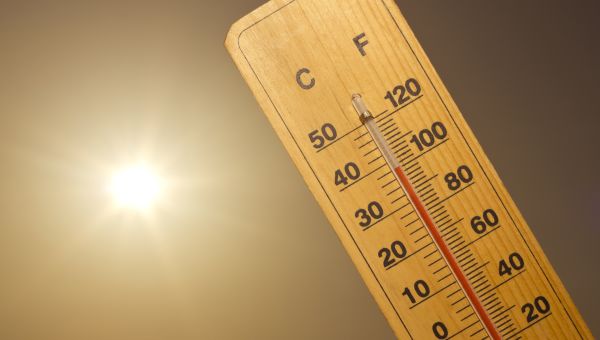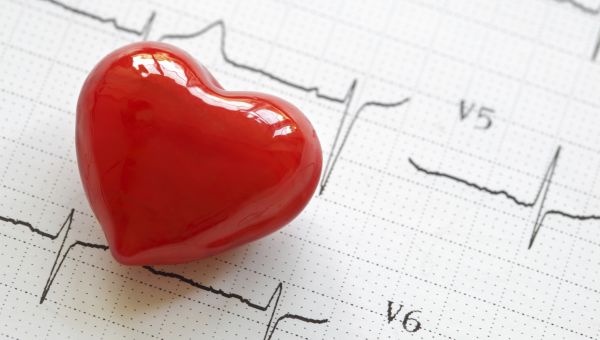6 Surprising Heart Attack Triggers
Learn how the weather, road rage or the big game can spell trouble for your ticker.

Every year, nearly 735,000 people in the US have a heart attack—and of those, about 120,000 die from it. You probably know that smoking, poor diet choices and a sedentary lifestyle are bad for your ticker, but you may be surprised to find that other things—like climate change, your relationship status and even the sports you watch—could increase your heart attack risk.
That’s why we turned to HCA cardiologist Farhad Rafii, MD, of West Hills Hospital and Medical Center in California to learn more about surprising triggers, as well as easy ways to keep your heart strong.

Climate Change
You may not think global climate change could affect your heart health. But cases of cardiovascular disease are likely to rise, due to hotter temperatures and an increase in extreme weather, says the National Institute of Environmental Health Sciences. “Extreme hot or cold temperatures cause physical distress, which may increase the demands on the heart muscle and prevent the blood supply from doing its job, triggering a heart attack,” explains Dr. Rafii.
Protecting yourself against the elements is the best way to keep your ticker strong. This includes dressing for the right season and staying hydrated—but overall, it’s about knowing your body’s limitations, he adds.

Winter Chores
Colder temps, along with high winds, snow and rain, can increase your heart attack risk. That’s because your heart has to work overtime when you move from the warm indoors to the cold outside. For winter chores, be sure to bundle up in warm, light layers. And consider passing off hefty snow-shoveling duties to your teenage neighbor. “Shoveling snow … is considered a fairly arduous physical activity,” says Rafii. For someone who’s unfit, that can mean trouble for their heart.
If you do end up working outside, listen to your body and take plenty of breaks.

Divorce
Ending a marriage can take more than an emotional toll. In a 2015 study, researchers found that divorced women were more likely to have a heart attack than married women; after two divorces, their risk nearly doubled. Men who had one divorce were just as likely to have a heart attack as married men, but their risk increased after two or more divorces. “One of the largest forms of stress is loss of a loved one or divorce or a major life event,” says Rafii. Over time, “the release of stress hormones … can create injury to the wall of the blood vessel,” potentially causing a heart attack.
Try these three tips to help ease the pain and stress of divorce.

Short Tempers
Do you have a hard time keeping your cool under stress? It could be hurting your heart. In a 2015 study, participants showed an 8.5 times higher risk of heart attack two hours after intense outbursts of anger–in situations such as family arguments, work conflicts or road rage–compared to people who showed milder reactions.
In general, hot-headed people have a higher heart attack risk because repeated episodes of anger could affect blood pressure and blood vessel walls, Rafii says.
Next time you feel your fists clench or your jaw tense up, Dr. Rafii suggests counting to ten or taking deep breaths to calm down.

Working Out Too Hard
We all know exercise is good for the heart, but couch potatoes who suddenly jump into vigorous workouts are upping their risk for a heart attack. Doing too much too soon is dangerous, so talk to your doctor before starting any exercise routine. And remember, just because you look healthy on the outside doesn’t mean you’re healthy on the inside: Hypertension and other heart-related conditions often have no symptoms.
Marathoners aren’t off the hook, either. Extreme athletes may push their bodies too hard, bringing on heart problems that otherwise wouldn’t occur, says Rafii.
This doesn’t mean you have to hang up your sneakers. Just talk to your doctor before signing up for your next race.

Super Bowl Sunday
Die-hard sports fans, take note: Getting upset over your team’s loss at the Super Bowl could spell trouble for your heart. In fact, a 2013 study found an increase in heart attacks and cardiovascular deaths days after the Super Bowl in football fans of the losing team. More specifically, there was a 20 to 24 percent increase in both circulatory and cardiovascular deaths in Boston after the Patriots lost to the Giants in 2008.
Try to remember it’s just a game. And if you’re a heart patient, go easy on the beer, pizza and hot dogs while you cheer on your team.

Know the Signs
If you think the main signs of a heart attack are clenched fists or chest pain and pressure, think again. In reality, “this is only seen in about 50 percent of individuals,” says Rafii. Other, more common symptoms include a sensation of heaviness in the chest without pain, a sudden onset of difficulty breathing and lightheadedness, fatigue and abdominal discomfort. If you think you’re having a heart attack, call 9-1-1. “Better to be wrong and seek immediate medical attention than to risk missing a true heart attack,” Rafii says.
More On


video

article


video


video


video
